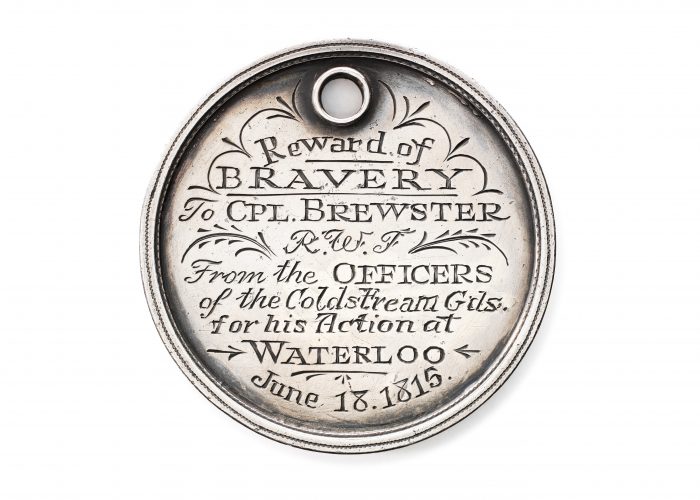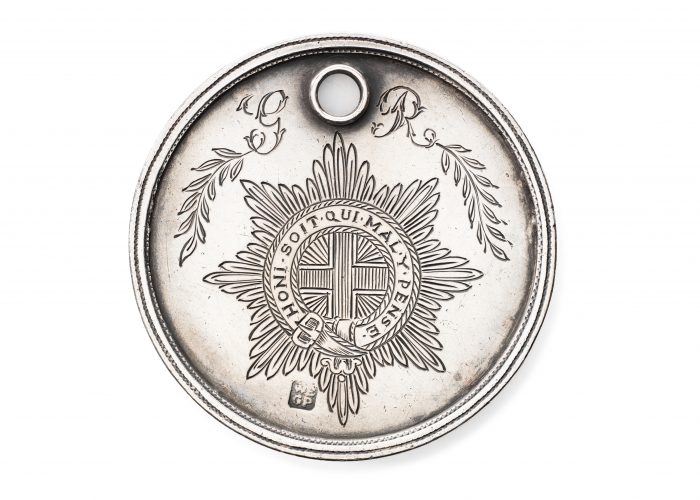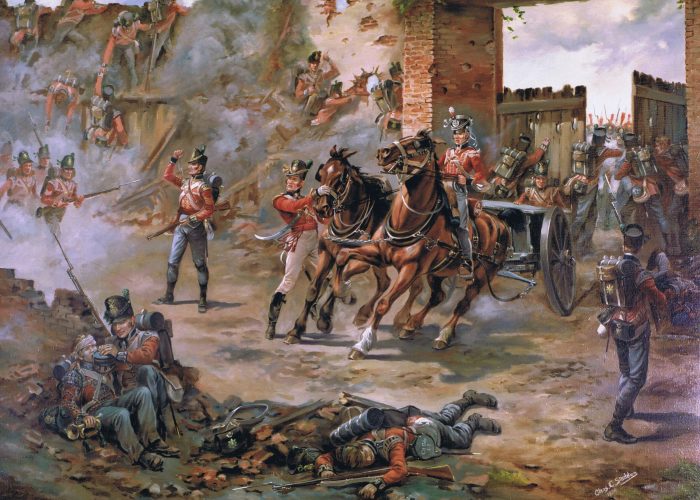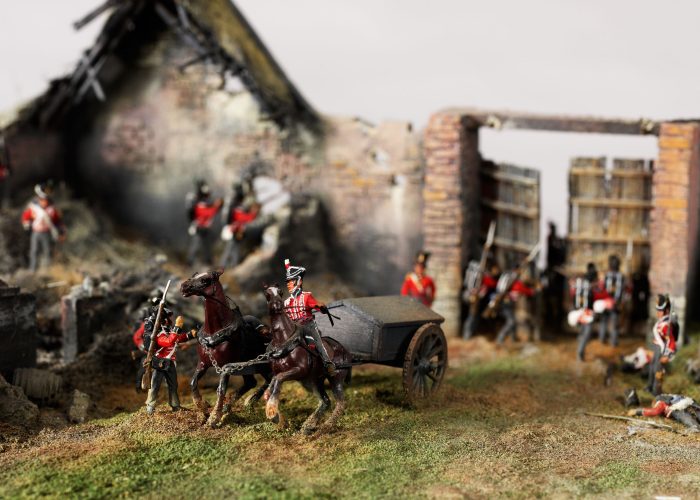Private Brewster’s silver Waterloo medal
The silver medal of Private Brewster whose brave intervention during the Battle of Waterloo is said to have helped save the day at Hougoumont Farm
This medal represents an interesting and mysterious story revolving around the emergency supply of ammunition during the time that the farm at Hougoumont was most in danger. The story goes, and is indeed corroborated by Captain Seymour, Lord Uxbridge’ s ADC in his letter to Captain Siborne that:
“Late in the day of the 18th June I was called by some officers of the 3rd Guards defending Hougoumont to use my best endeavours to send them musket ammunition. Soon afterwards I fell in with a private of The Waggon Train in charge of a tumbrel on the crest of the position. I merely pointed out to him where he was wanted, when he gallantly started his horses, and drove straight down the hill to the farm, to the gate of which I saw him arrive. He must have lost his horses, as there was a severe fire kept on him. I feel convinced to that man’s service the Guards owe their ammunition.”
The man in question was probably Private Joshua Brewer of The Royal Waggon Train whose name appears on the Waterloo Roll. Allegedly he later transferred to the 3rd Guards rising to the rank of Corporal.
In 1894 Arthur Conan Doyle wrote a short story based upon this tale and entitled it: A Straggler of ’15. However, the name is changed to Gregory Brewster and the story, although similar, is quite different in certain aspects. For example, Brewster is a Corporal in the 3rd Guards at the battle.
The story goes that shortly after Waterloo he is presented with a medal in the presence of The Prince Regent. So possibly this medal, displayed in the Royal Logistic Corps Museum, is a notional medal from when the story was turned into a short play. But there is a snag. The medal clearly shows the Coldstream Star on the reverse and it is shown as a gift from the Officers of the Coldstream Guards to Corporal Brewster of the Royal Waggon Train.
The play opened at the Prince’s Theatre Bristol and travelled around the country and had successful runs in the West End and in New York. The role of the hero was played by Sir Henry Irving.
The medal illustrates that there are still stories and legends which cannot be proved – and it is best to give the story the benefit of doubt.
-
Curatorial info
- Originating Museum: Royal Logistics Corps Museum
-
Use this image
You can download and use the high resolution image for use in a non-profit environment such as a school or college, but please take note of the license type and rights holder information below
- Rights Holder: Royal Logisitics Corps
- License Type: Creative Commons









